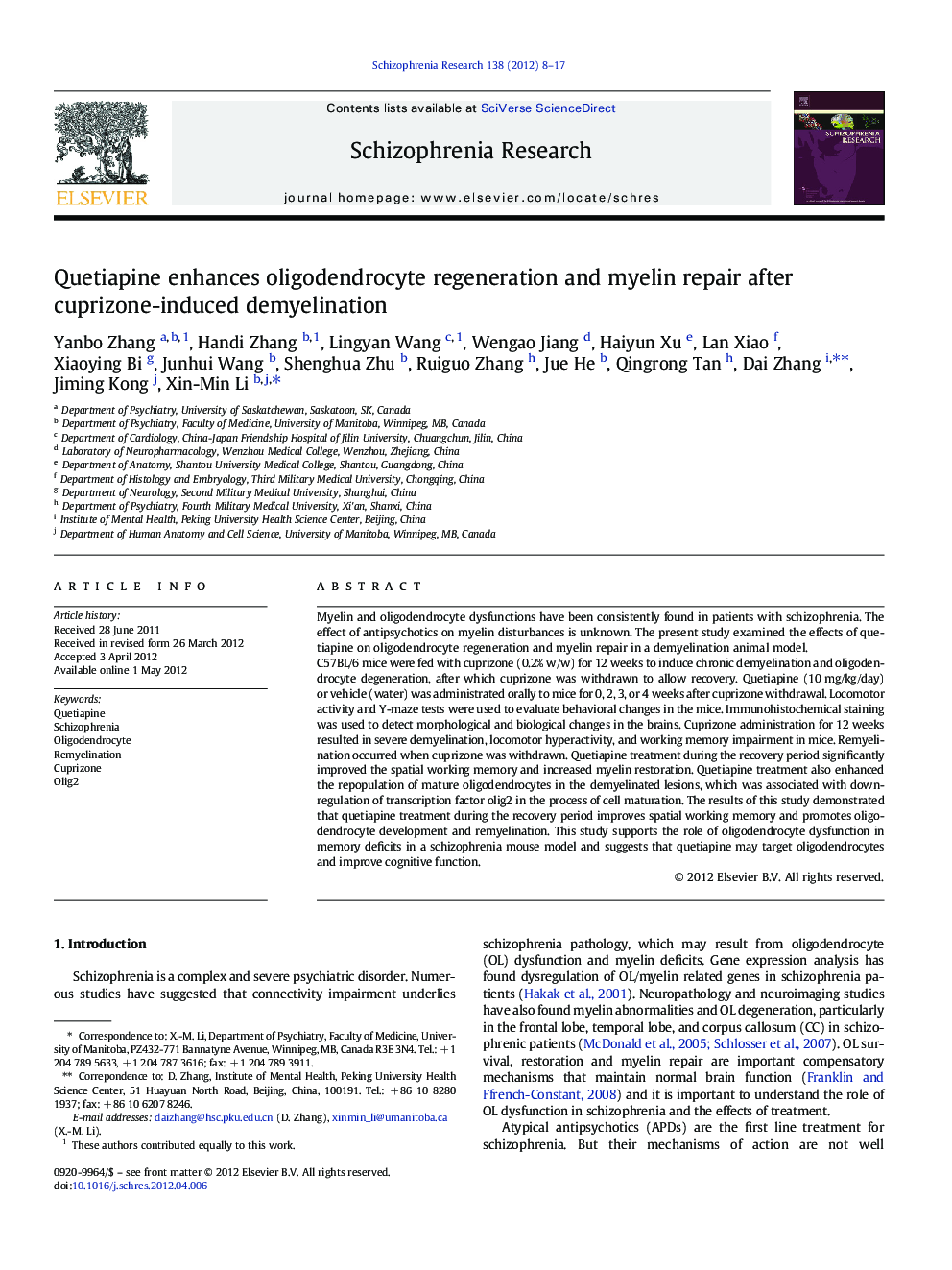| Article ID | Journal | Published Year | Pages | File Type |
|---|---|---|---|---|
| 10308174 | Schizophrenia Research | 2012 | 10 Pages |
Abstract
C57BL/6 mice were fed with cuprizone (0.2% w/w) for 12Â weeks to induce chronic demyelination and oligodendrocyte degeneration, after which cuprizone was withdrawn to allow recovery. Quetiapine (10Â mg/kg/day) or vehicle (water) was administrated orally to mice for 0, 2, 3, or 4Â weeks after cuprizone withdrawal. Locomotor activity and Y-maze tests were used to evaluate behavioral changes in the mice. Immunohistochemical staining was used to detect morphological and biological changes in the brains. Cuprizone administration for 12Â weeks resulted in severe demyelination, locomotor hyperactivity, and working memory impairment in mice. Remyelination occurred when cuprizone was withdrawn. Quetiapine treatment during the recovery period significantly improved the spatial working memory and increased myelin restoration. Quetiapine treatment also enhanced the repopulation of mature oligodendrocytes in the demyelinated lesions, which was associated with down-regulation of transcription factor olig2 in the process of cell maturation. The results of this study demonstrated that quetiapine treatment during the recovery period improves spatial working memory and promotes oligodendrocyte development and remyelination. This study supports the role of oligodendrocyte dysfunction in memory deficits in a schizophrenia mouse model and suggests that quetiapine may target oligodendrocytes and improve cognitive function.
Related Topics
Life Sciences
Neuroscience
Behavioral Neuroscience
Authors
Yanbo Zhang, Handi Zhang, Lingyan Wang, Wengao Jiang, Haiyun Xu, Lan Xiao, Xiaoying Bi, Junhui Wang, Shenghua Zhu, Ruiguo Zhang, Jue He, Qingrong Tan, Dai Zhang, Jiming Kong, Xin-Min Li,
